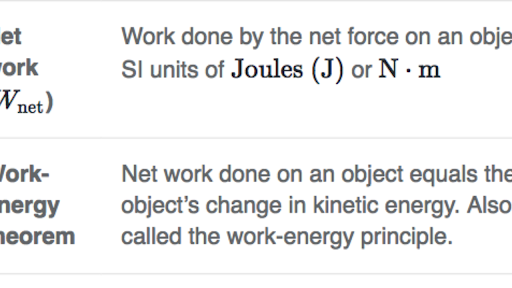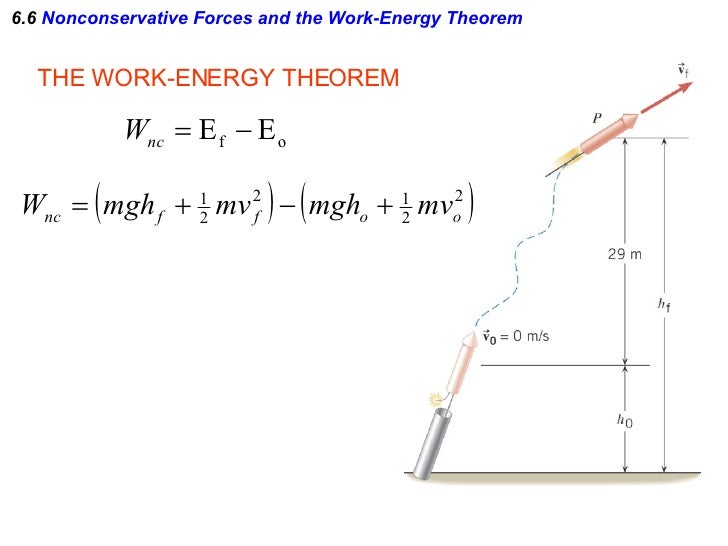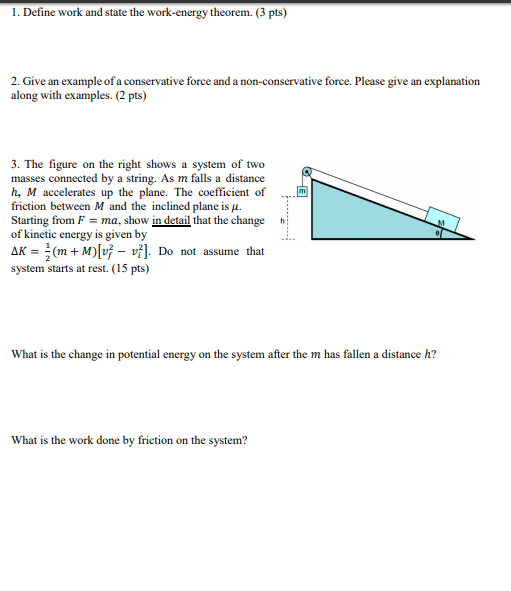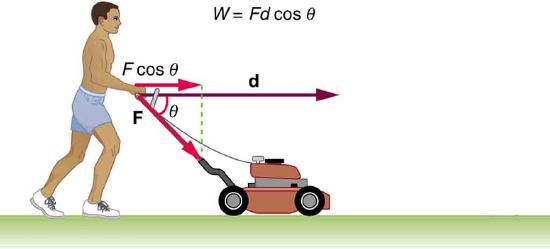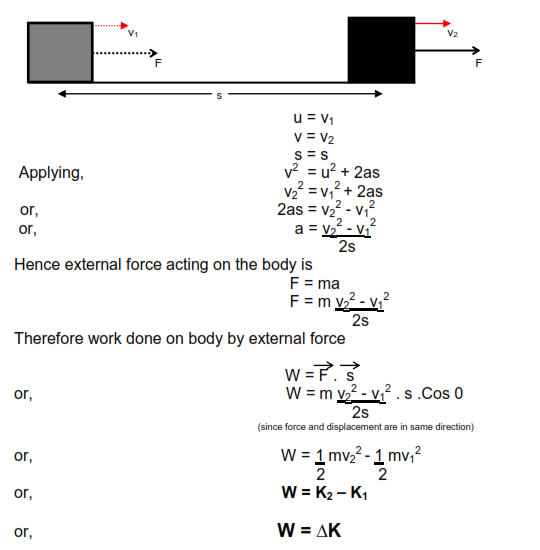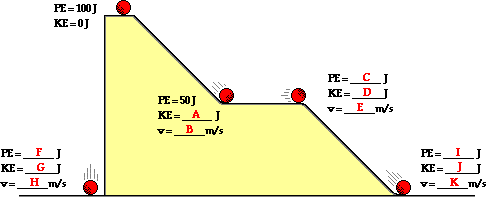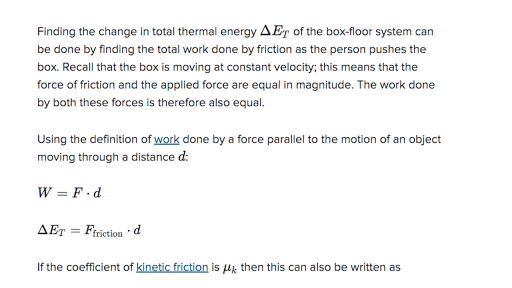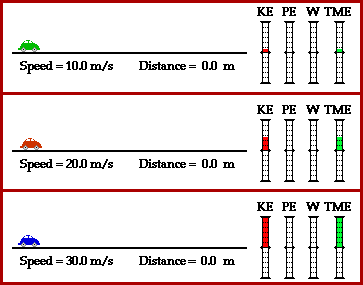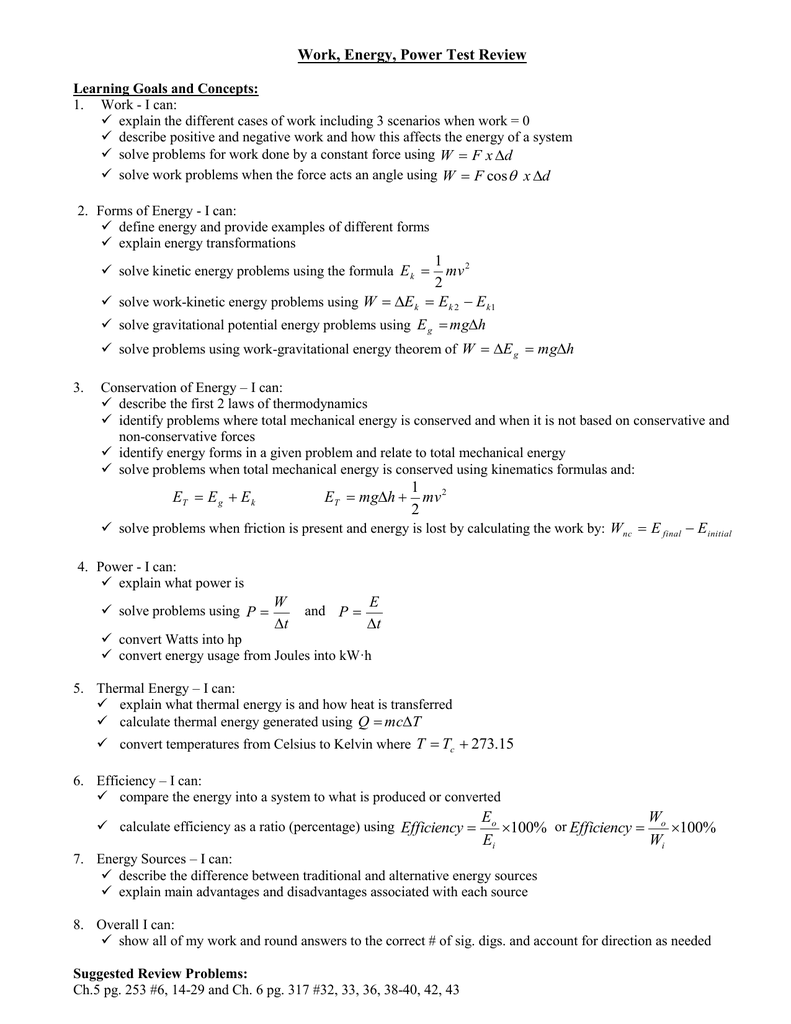The principle of work and kinetic energy also known as the work energy theorem states that the work done by the sum of all forces acting on a particle equals the change in the kinetic energy of the particle.
Work energy theorem definition physics.
This definition can be extended to rigid bodies by defining the work of the torque and rotational kinetic energy.
This principle of work and its relationship to kinetic energy is a core mechanical physics concept.
For an object traveling at a speed v and with a mass m the kinetic energy is given by.
The work energy theorem is a generalized description of motion that states that the work done by the sum of all forces acting on an object is equal to the change in that object s kinetic energy.
The principle of work and kinetic energy also known as the work energy principle states that the work done by all forces acting on a particle the work of the resultant force equals the change in the kinetic energy of the particle.
Understand how the work energy theorem only applies to the net work not the work done by a single source.
If you re seeing this message it means we re having trouble loading external resources on our website.
Review the key concepts equations and skills for the work energy theorem.
The physics definition of work is.
